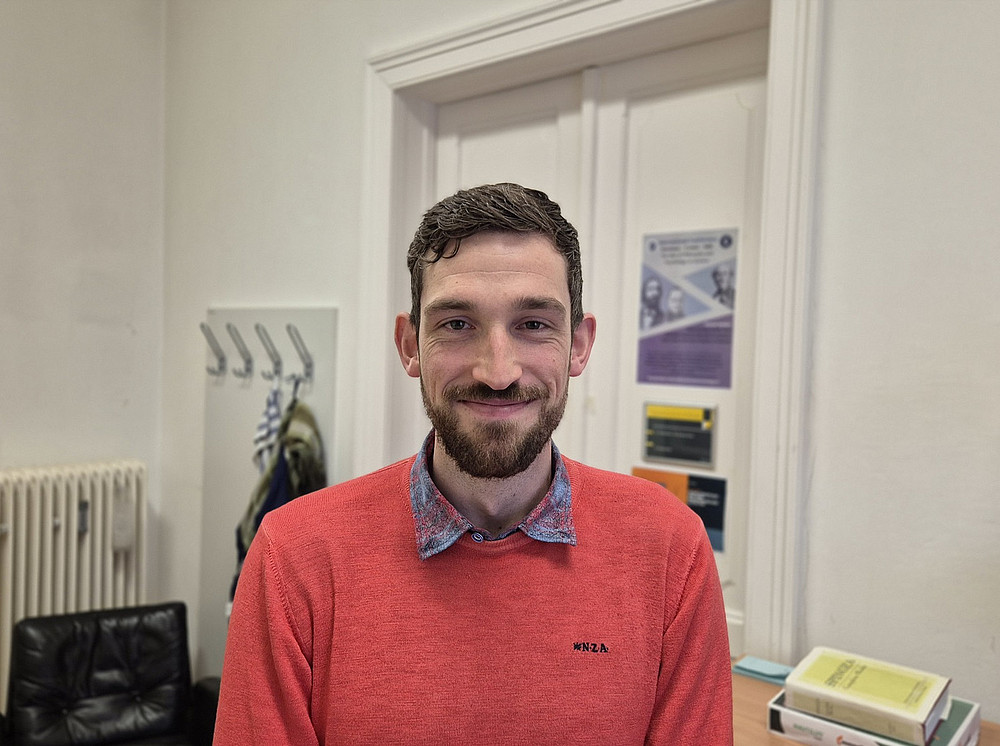On the back of the tortoise. The infinite regression & Spinoza
What does a tortoise have to do with Spinoza and what is an infinite regress? Dutch-born Harmen Grootenhuis is a Spinoza expert and examines the reception history of the early modern philosopher from different angles.
The philosophy of Baruch de Spinoza (1632 - 1677) has accompanied Harmen Grootenhuis throughout his academic life. He originally wanted to write a Bachelor's thesis that combined his two subjects of philosophy and religious studies, but things turned out differently and he began to study Spinoza's thought. He remained true to this in his Master's thesis, in which he focussed on the Dutch philosopher's theory of essences, which also became the inspiration for his doctoral thesis.

In his dissertation, Grootenhuis traces the history of Spinoza's reception in Great Britain; in particular the reception of the so-called regression argument. The British philosophers - often influenced by Hegel - explore the problem of how Spinoza unites the individual things without having to dissolve them or abandon his monism. In his approach, Harmen Grootenhuis attempts to describe a cycle that resolves this problem. This led to the unusual title of his work: "Turtles All the Way Around: a Study of Inherence in the British Idealist Reception of Spinoza". He refers to the English expression "Turtles all the way down", which is an expression for problems of infinite regress and goes back to the mythological idea of a world turtle that carries the flat earth on its back, which in turn stands on the back of an even larger turtle, and so on.
Having left the turtle behind, Harmen Grootenhuis is now at the beginning of a new research project dedicated to Richard Avenarius' interpretation of Immanuel Kant. Avenarius, who is regarded as a kind of protopositivist, also influenced the Vienna Circle, with which Grootenhuis - also due to his location - wants to get closer to Austrian philosophy.
Harmen Grootenhuis completed the Master's Research Programmes in Philosophy and Religious Studies at the RUG Groeningen before writing his dissertation on "Turtles All the Way Around: a Study of Inherence in the British Idealist Reception of Spinoza" in Philosophy. He has been working at the Department of Philosophy since September 2024 in the History of Philosophy section under Ursula Renz.